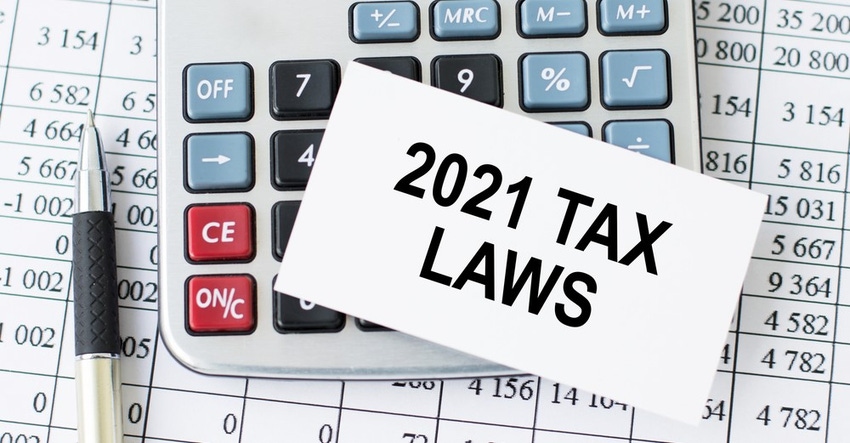A Look at the Biden-Harris Administration’s Proposed Tax Changes and Their Potential Impact on Self-Storage
President Joe Biden’s tax plan has several features that could affect self-storage owners and investors. The author, a real estate expert, highlights three important ones. Find out what they are so you can take any necessary steps to protect your investment.
May 11, 2021

With a new White House administration in place, tax planning is becoming increasingly important to self-storage owners and investors. It’s critical to pay attention to newly proposed policies that could affect your business assets.
President Joe Biden’s tax plan was published as a component of the platform for the Democratic Party and will need to be passed by the U.S. Congress. It’ll likely include extensive amendments before it’s finalized. However, it’s clearly taking aim at high earners and has many components that’ll have a meaningful impact on real estate investing.
Below I’ve summarized some of the proposed modifications. Just bear in mind that I’m not a certified public accountant, so speak with your tax advisors to ensure you fully grasp the new policies before making any adjustments to your investment strategy. Obviously, everyone’s situation is different.
Long-Term Capital Gains
Capital gains are the taxes you pay on the value you’ve earned on an asset, such as a self-storage property, at the time you transfer the deed to a new owner. The proposed change is a massive increase in long-term capital gains, from 20% to the ordinary income level of 39.6% for adjusted gross income over $1 million.
Typically, long-term capital gains are taxed at a top bracket of 20%, depending on the amount. The $1 million limit may sound large, but with today’s average price of a self-storage asset hitting $2.8 million-plus (and growing rapidly), these gains aren’t hard to find. In a time when we’re seeing a lot of longtime owners/developers reaching retirement age, longevity of ownership may have less reward than we once thought.
Step-Up Basis
The new administration proposes to eliminate the step-up basis for inherited property. This has long been the self-storage owner’s solution to avoiding capital-gains taxes. It adjusts the cost basis for accounting purposes from whatever the original owner paid for the property to the property’s value at the time of their death.
For example, let’s say your parents own a self-storage property. They paid $1 million for it 25 years ago, and today it’s worth $5 million. Under the current law, if they were to pass that property to you, the cost basis would step up to the current value. If you were to sell it, you would only owe capital-gains tax on any amount over $5 million you receive. Under the proposed plan, you’d pay capital-gains taxes on the $4 million of appreciation that has taken place over the last 25 years. Obviously, the devil is in the details; but these round numbers are meaningful and shouldn’t be taken lightly.
Lower Estate-Tax Exemption
Currently, there’s a 40% tax on estates valued above $11.58 million. The first $11.58 million you inherit is tax-free. If you inherit more, the estate tax kicks in. The new administration aims to increase the estate tax to 45% and, more important, to reduce the exemption from $11.58 million to $3.5 million. Using the example above in which your parents bought a self-storage property for $1 million and it’s now worth $5 million, it isn’t such a big leap to see how an estate can grow to more than the proposed $3.5 million exemption.
Clearly, this is a long-term estate-planning topic, but with the rapid appreciation self-storage properties have experienced over the last 10 years, this should be front of mind for long-term owners and investors. In fact, the three topics addressed above are only a fraction of the proposed new tax policies. They have yet to be signed into law. As stated, they’re clearly taking aim at investors and high earners. While it’s extremely unlikely that they’ll be implemented in their current form, it’s important for self-storage owners and investors to familiarize themselves with potential outcomes, then take the necessary steps to mitigate any negative impact on their investments.
Ben Vestal is president of the Argus Self Storage Advisors, a national network of real estate brokers who specialize in self-storage. Argus provides brokerage, consulting and marketing services to buyers and sellers via an extensive marketing platform for self-storage properties. Property listings and informational resources can be found at. For more information, call 800.55.STORE; e-mail [email protected].
About the Author(s)
You May Also Like





